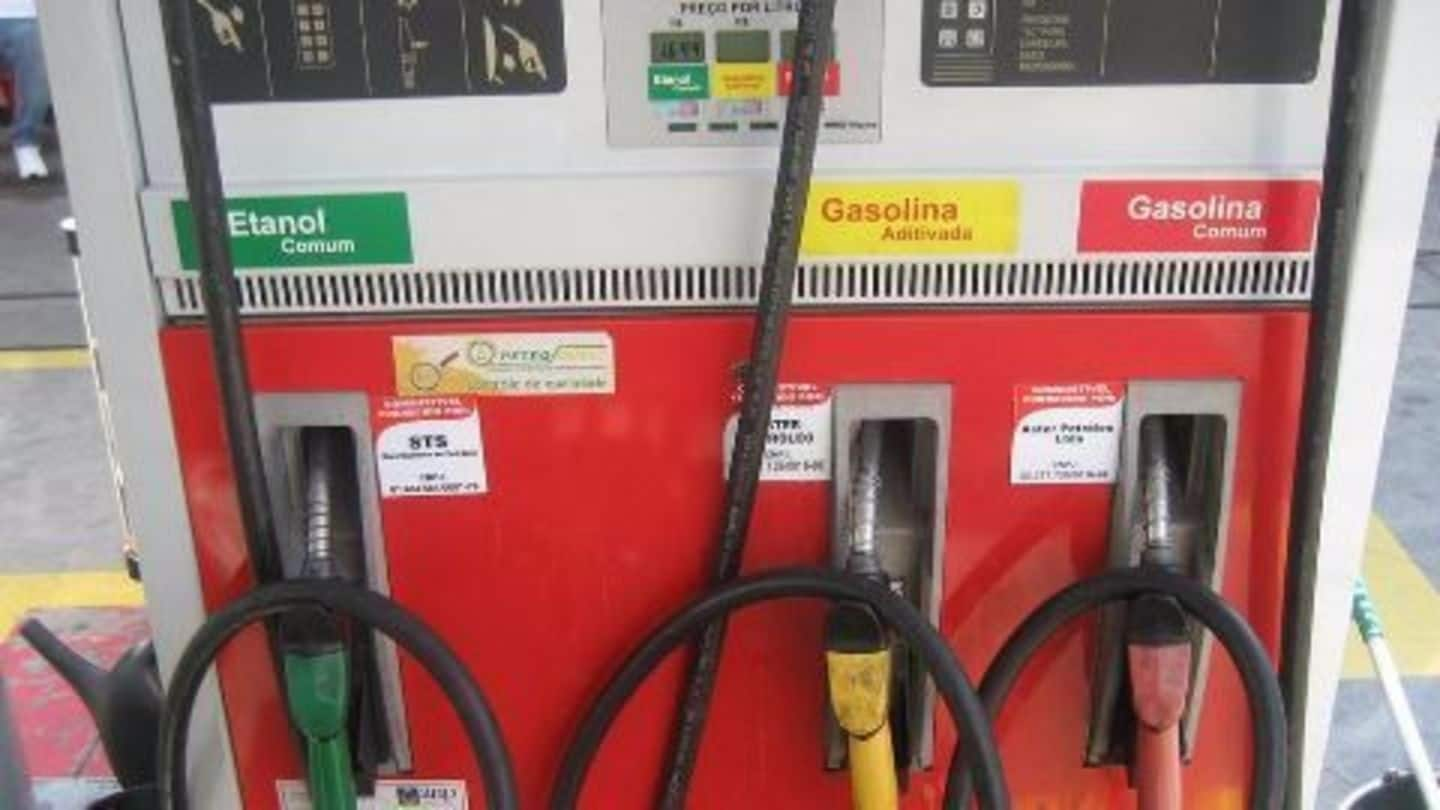
New ethanol policy aims to boost production
What's the story
In a bid to increase the consumption of ethanol and other biofuels in transportation sector, the government has decided to issue a new ethanol policy.
The policy will aim to boost production of ethanol in India and will be rolled out within a month.
Against a demand of 460 crore litres annually for different purposes, only 250 crore litres is available in the country.
Ethanol
What is ethanol?
Ethanol is the compound found in alcoholic beverages.
It is used as a motor fuel or as a biofuel when blended with petrol or gasoline.
Ethanol can be produced from a variety of feedstock including sugarcane, corn, fruits, sunflowers and barley.
Ethanol fuel is most widely used in Brazil and USA and both countries together account for over 80% of global ethanol production.
2001
5% ethanol blending in petrol made mandatory
In 2001, the Indian government made it mandatory to blend 5% ethanol with petrol, and in 2003 implemented the mandate in 9 states and 4 union territories.
Subsequently, the mandate was extended across India in November 2006, in 20 states and 8 union territories, except a few north-eastern states and J&K.
The government proposed that blending rate be increased to 20% by 2017.
11 Aug 2015
10% ethanol blending mandatory
The government made 10% blending of ethanol mandatory in an attempt to boost the production of the biofuel in the country.
The order would come into effect from October 2015.
The government pegged this as the long-term solution for cash-starved sugar mills, which owe over Rs.14,000 crore dues to cane growers as mills can earn Rs.48-49 per litre of ethanol.
Personal
World's first ethanol car
The first car in the world to successfully run on a blend of ethanol and traditional motor fuel (gasoline/petrol) was the Fiat 147, which was introduced in Brazil in 1978.
Data
Brazil: Ethanol central
After Brazil implemented its bio-fuel programme in 1976, close to 94% of cars sold in Brazil are flexible fuel cars that can handle ethanol blends from 18 per cent upward .
Challenges
What are the barriers to implementing this mandate?
There are significant transaction barriers which impede smooth supplies of ethanol for blending.
Several states impose a levy on molasses and also regulates the movement of non levy molasses.
Inter-state movement of ethanol requires No-Objection-Certificates from the State Excise Authorities.
States also impose "export/import" duties on ethanol leaving and entering their boundaries, severely affecting the economic feasibility of using the blend.